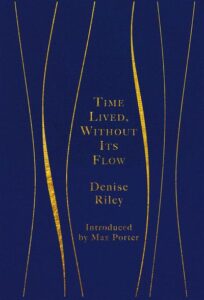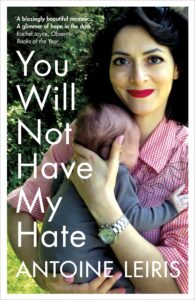Bereavement and grief are inevitably a part of the current COVID pandemic. Infection control methods for COVID have even, by preventing normal visiting or funerals, exacerbated feelings of guilt or of things unsaid. I want then, with some trepidation, to recommend some of the best writings from experience.

Why trepidation? Well, partly because there are so many memoirs of grief, and partly because grief is, as novelist Julian Barnes has remarked, so individual and personal: “Other, supposedly parallel, cases of loss and grief are helpfully cited; occasionally they seem insulting, but mostly just irrelevant. As Forster wrote in Howard’s End: ‘One death may explain itself, but it throws no light upon another’.” The grief felt for a son who has committed suicide (Aidt 2019) is not be the same as the grief for a parent (McDonald 2014). Still, Julian Barnes went on to review a memoir of grief by Joyce Carol Oates (Barnes 2011) and to compare it with that of Joan Didion (Barnes 2012). So, at the risk of omitting obvious texts that would be useful, or of being seen to insult, or to be irrelevant, I make my own recommendations.
The sense that time has stopped after the death of a loved one is common. This altered perception of time, while everyday life continues, was the subject matter of poet Denise Riley’s essay Time Lived, Without Its Flow (2019) – my top recommendation. Short, but perfectly formed. It has been reviewed by novelist Max Porter (2019) and the two have combined Emily Berry for a podcast for the London Review of Books (2019).
Julian Barnes’ writings followed the death of his wife Pat Kavanagh in 2009, but it took him a few years to formulate Levels of Life (Barnes 2013) which tackles grief but doesn’t even mention Pat’s name. Like Barnes, Marion Coutts experienced the death of a partner. The Iceberg (2015) is her version of Tom Lubbock’s progressive loss of language due a brain tumour, and also of her sense of loss after his death whilst caring for their young son. Whereas her account to years to write, Antoine Leiris wrote down his immediate reactions to his wife’s death at the hands of terrorists in Paris in 2015 in a few short weeks (Leiris 2016).
Writing a personal journal is a common reaction to bereavement. It was part of the coping process for Aidt, Barnes, Coutts, Didion, Oates, and Riley. Extracts from Dannie Abse’s wonderful journal for the year following his wife’s sudden death were published as The Presence (2007). Fiction and nature writing can also speak to our emotions – one of the most eloquent being H is for Hawk , which Helen McDonald wrote after the death of her father (McDonald 2014).
One of the features of modern society is its compartmentalising and distancing of dying and death. Traditional preparations for the loss of a loved one, and the rituals which mark such a loss, have become diluted and even lost. Kevin Toolis’ memoir My Father’s Wake: How the Irish teach us to live, love and die (2017) is a wonderfully warm and touching piece that spoke strongly to me.
If you want poetry, or short pieces, Elspeth Barker has mined literature from Classical Rome onwards for an excellent anthology of poetry and shorter prose called Loss (1997).
Abse, Dannie (2007) The Presence, London, Hutchinson
Aidt, Naja Marie (trans. D.Newman) (2019) When Death Takes Something From You Give It Back, Quercus
Barker, Elspeth (ed.) (1997) Loss, An Anthology, J.M.Dent
Barnes, Julian (2011) ‘For Sorrow There Is No Remedy’, New York Review of Books 7 April 2011 https://www.nybooks.com/articles/2011/04/07/sorrow-there-no-remedy/
Barnes, Julian (2012) ‘Regulating Sorrow’ in: Through The Window, 17 essays (and one short story), London, Vintage
Barnes, Julian (2013) Levels of Life, Vintage
Coutts, Marion (2015) The Iceberg: A Memoir, Atlantic Books
Didion, Joan (2005) The Year of Magical Thinking, 4th Estate
Leiris, Antoine (trans. Taylor, Sam) (2016) You Will Not Have My Hate, Vintage

McDonald, Helen (2014) H is for Hawk, Jonathan Cape
Porter, Max (2019) ‘I felt changed’, The Guardian 27 Sept 2019, https://www.theguardian.com/books/2019/sep/27/max-porter-way-though-grief-denise-riley
Riley, Denise (2019) Time Lived, Without Its Flow, Picador
Riley, Denise; Porter, Max; Berry, Emily; (2019) ‘Time Lived Without Its Flow’, London Review of Books podcast, 9 October 2019, https://www.lrb.co.uk/podcasts-and-videos/podcasts/at-the-bookshop/time-lived-without-its-flow-denise-riley-max-porter-emily-berry
Toolis, Kevin (2018) My Father’s Wake: How the Irish teach us to live, love and die, Weidenfeld & Nicolson
